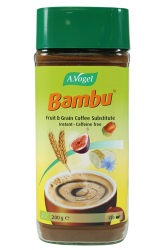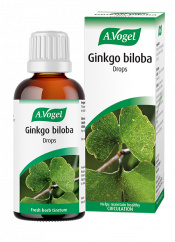Do women experience heart problems differently to men?
Cardiovascular disease in women tends to occur later in life than it does in men. This has led some to believe that women have a degree of protection against heart issues.1 However, as we will soon see, heart health is not something we can take for granted, regardless of our gender. Women appear to experience heart problems differently to men, and understanding why this is the case will enable us to look after our hearts better and more appropriately.
In this blog I'll be looking at:
- How menopause influences heart health
- Other issues that influence heart health in women
- Lifestyle tips to keep the heart healthy
- Plus, quick tips for good heart health.
How does menopause influence heart issues?
During menopause we see a fall in oestrogen levels, causing symptoms like joint pain and mood fluctuations. These issues are common but what is perhaps less recognised is that falling oestrogen can also influence heart health.
This is because oestrogen acts as a vasodilator, meaning it helps to open blood vessels. This, in turn, ensures blood flows easily through them. However, as oestrogen levels are significantly lower after menopause, this protective function is reduced, meaning women can become more prone to heart issues. They may be more likely to have inefficient muscle contractions, for example. This problem is particularly prominent in the tiny blood vessels that supply oxygen to the heart, a problem known as microvascular angina pectoris, whereby blood flow is weaker and chest pains can occur.
On top of this, our heart muscles lose some of their power as we get older and the blood vessels may become less elastic. We may also miss out on magnesium sources if our diets slip in older age – refined and processed foods are low in magnesium, which is important for reducing heart disease of all sorts.2 All of these are contributing factors to chest pain and heart problems in middle-aged women.
Chest pain can appear at any time, but is particularly likely after exercise, at night, or at a time of rest. It can be accompanied by fatigue or low energy and is characterised by a tight sensation. Anyone experiencing these kinds of issues should seek medical assistance immediately.
My self-care tip: Keeping a heart-healthy diet
Diet plays a crucial part in keeping the heart-healthy. Find out more in my video below!
Other variations in female heart health
Ok, so the menopause plays a part in gender differences in heart disease. However, there are some other ways in which women differ from men when it comes to heart health.
Stress
Stress is known to be a big factor in heart problems, particularly amongst women.
Research shows that women respond differently to stress than men. They may be more likely to experience depression and anxiety, whilst men are more likely to experience cravings or turn to alcohol for release.3
Stress is a huge influence on the heart because it can lead to risk factors for heart issues, such as unhealthy eating and smoking. It also affects the development of atherosclerosis, which is the hardening of the arteries so that they are less able to expand and contract efficiently.
Angina
Angina (chest pain) is another heart issue that may differ between the sexes.
Women with angina often have symptoms due to blood vessel spasms, while in men it is more likely to be linked to blockages in the coronary arteries (the arteries that supply oxygen to the heart).
If you have angina, this should be seen by a doctor straight away as it is often a warning sign of heart disease. As well as chest pains, angina can be accompanied by nausea, breathlessness and vomiting.
High blood pressure
At around the age of 60, over a third of women have hypertension (high blood pressure). This may not cause noticeable symptoms, though some issues it has been associated with are: hot flushes, insomnia, headaches, difficulty concentrating and sweating. There may also be an increase in heart rate and small acts of exertion may cause increasing tiredness.
As these symptoms are often seen during the menopause, many older women mistakenly think their menopause is coming back when, in fact, symptoms are triggered by high blood pressure.
Women are more prone to high blood pressure in the period after menopause because the adrenal glands react more sensitively at this time, causing the pulse to increase faster during exertion.
Adults over the age of 40 are advised to get their blood pressure checked every 5 years. This is particularly important if you have a family history of heart problems.
Keeping the heart healthy
At this point, you may be thinking that the picture doesn't look very bright for women and their heart health! However, there are lots of very simple things you can do to support your heart, going forward.
Laugh!
It's good for our mental health, mood and can even have a positive influence on pain. On top of this, the heart is another area of our health that research is just beginning to show could benefit from a little more laughter.
A sense of humour has been positively associated with survival from cardiovascular disease and infections in women. In men, it was seen to lessen infection-related mortality.4
So, perhaps it's time to take up laughing yoga to give your health a boost!
Eat lots of veggies
A recent Australian study found that cruciferous vegetables are particularly beneficial for our heart health.5
Women who consumed more than 45g of cruciferous vegetables every day were 46% less like to develop an excessive build-up of calcium in their aorta (the main artery leading from the heart) than those who consumed little to no cruciferous vegetables.
Calcium in the aorta is problematic as it can reduce the amount of blood circulating through the body. It results from the build-up of fatty calcified deposits on the inner walls of the blood vessel which, in turn, is a leading cause of heart attacks and strokes.
One of the reasons cruciferous vegetables are so helpful is that they contain vitamin K, which may help to inhibit the calcification process that occurs in blood vessels.
Cruciferous vegetables include broccoli, cabbage and Brussels sprouts, though we should not forget to include a wide variety of veg in our diets to provide our bodies with plenty of vitamins and minerals.
Cut your coffee habit
Those who drink coffee less frequently have a reduced risk of hypertension, according to research.6 So, if you are a coffee lover, why not try a caffeine-free alternative such as Bambu to help you get that fix?
Quick tips for a healthy heart
To finish up, here is a quick list of tips that are easy to implement and really beneficial for our heart!
- Get variety into your diet, including healthy oils, nuts, seeds, fruit and veg. If your diet allows, ensure you are getting plenty of seafood, lean meats and magnesium-rich green veg and wholegrains. You can find out more about a heart-healthy diet here.
- Give up smoking. It's a huge risk factor for heart problems, so is definitely something we want to say goodbye to!
- Exercise. It doesn't matter how intense your activity is – just focus on getting moving to give your heart a boost. Check out our blog on exercises to do at home to get started!
References
1 https://www.ncbi.nlm.nih.gov/pmc/articles/PMC3018605/
2 https://openheart.bmj.com/content/5/2/e000775
3 https://www.ncbi.nlm.nih.gov/pmc/articles/PMC2575018/
4 https://journals.lww.com/psychosomaticmedicine/Abstract/2016/04000/A_15_Year_Follow_Up_Study_of_Sense_of_Humor_and.12.aspx
5 https://www.cambridge.org/core/journals/british-journal-of-nutrition/article/cruciferous-vegetable-intake-is-inversely-associated-with-extensive-abdominal-aortic-calcification-in-elderly-women-a-crosssectional-study/D41FFFF020A58DC9A70C6320ADD86058










